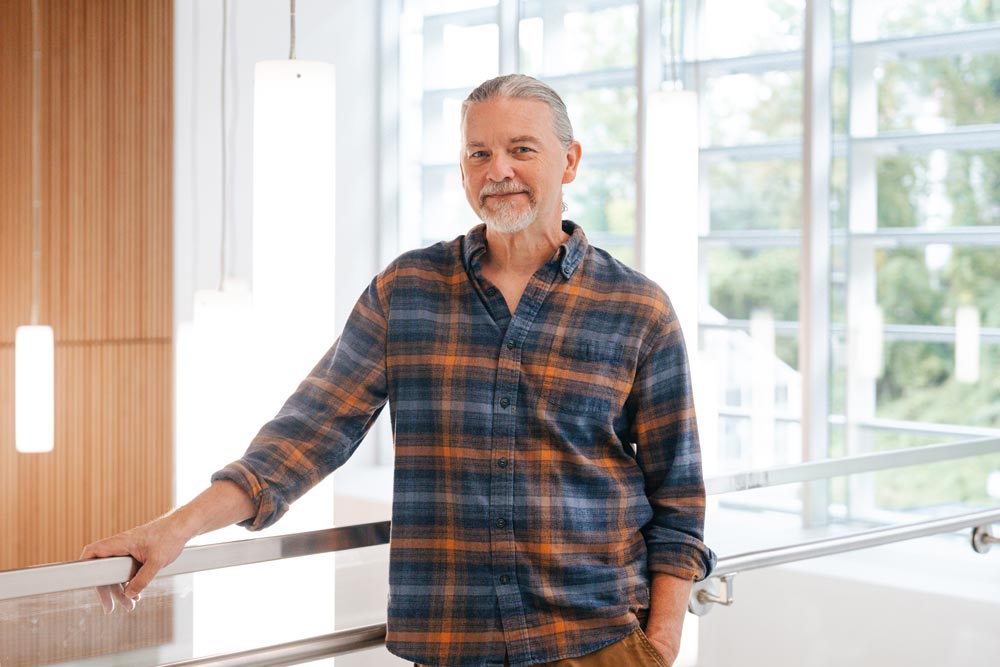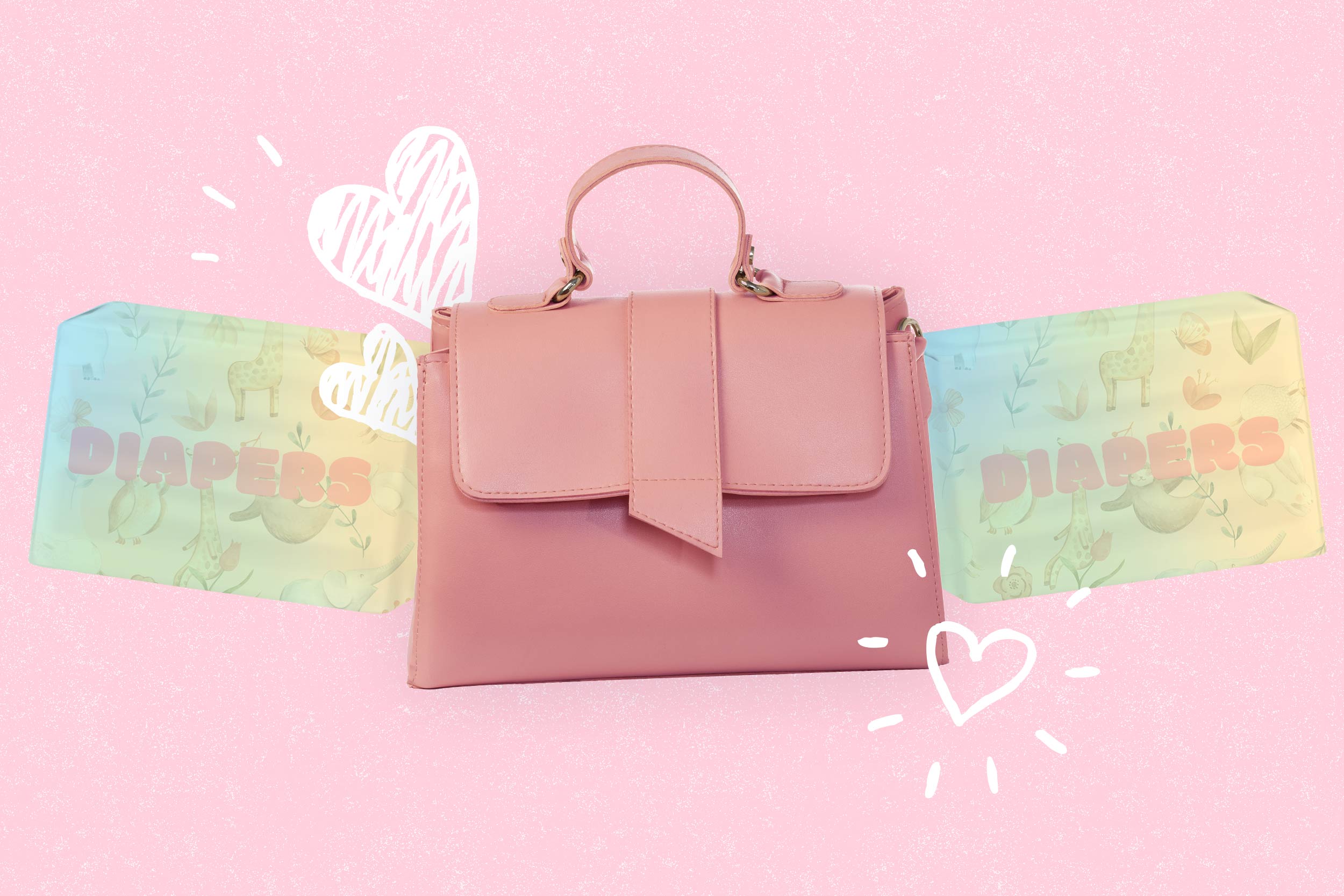You deserve the purse. Or the dessert. Or that coffee.
But people often forgo small indulgences. The rent is due. The car needs an oil change. Or your infant needs formula.
A young mother recently walked down the baby aisle at a Target store. Sitting on the shelf to the right of a bottle of store-brand baby lotion, priced at $4.99, sat a purse with its tag still hanging off the chain strap.
The woman snapped a photo of the scene and posted it on social media with the title, “She Deserved the Purse,” the picture implying that the cost of baby supplies caused the buyer to ditch the purse. Comments flooded in. One user wrote, “The sacrifices of a mother. I really felt this.”

Psychology professor Jim Coan studies the neural systems that support social forms of emotion regulation. He says humans are hard-wired to be kind to others. (Photo by Emily Faith Morgan, University Communications)
The post went viral and soon, mothers around the country and beyond were flooding baby aisles in stores, tucking folded $20 bills or gift cards under lids of baby formula and into diaper boxes. Some included notes of affirmation, like the one that read, “Mama, I see you. I’m so proud of you. Buy yourself something nice.” It was a bit of good news amid a glum news feed.
University of Virginia psychology professor Jim Coan said humans feel good when they are kind, something that is important to remember, especially now. UVA Today talked with Coan about this built-in mood booster and how people don’t need to wait for a social media trend to spread goodness in their corners of the world.
Q. Why does being kind feel so good?
A. We are wired, biologically, to affiliate. It’s one of those things that is (essential) for humans, like food or oxygen or water. It’s an unconditioned reward. It’s an unconditioned reinforcer for humans to connect to another human.











